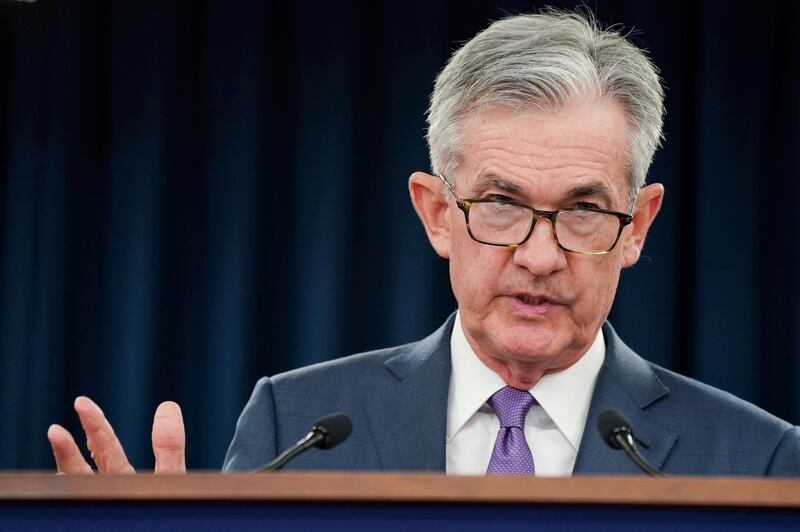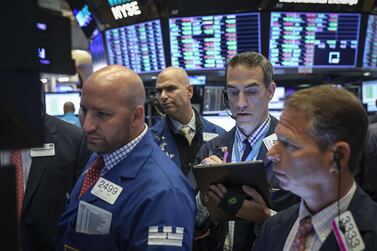Federal Reserve Chairman Jerome Powell said Friday that President Donald Trump’s trade wars have complicated the Fed’s ability to set interest rate policies but offered no clear signal about further interest rate cuts.
Speaking to a gathering of central bankers in Jackson Hole, Wyoming, Mr Powell pointed to increasing evidence of a global economic slowdown and suggested that uncertainty from Mr Trump’s trade wars has contributed to it.
The outlook for the US economy, Mr Powell said, remains favourable but continues to face risks. Mr Powell reiterated that the Fed “will act as appropriate” to sustain the expansion — phrasing that some analysts see as suggesting rate cuts. But the Fed chairman didn’t give financial markets any explicit guidance on whether rate cuts are likely in the coming months.
The Fed cut rates last month for the first time in a decade, and financial markets have baked in the likelihood of further rate cuts this year.
The confusion only heightened in the days leading to the annual gathering of global central bankers.
Minutes of the Fed’s July meeting released Wednesday showed that although officials voted 8-2 to cut their benchmark rate by a quarter-point, there was a wider divergence of opinion on the committee than the two dissenting votes against the rate cut had indicated.
The minutes showed that two Fed officials favoured a more aggressive half-point rate cut, while some others adopted the polar opposite view: they felt the Fed shouldn’t cut rates at all.
The minutes depicted the rate cut as a “mid-cycle adjustment,” the phrase Mr Powell had used at his press conference after the rate cut. That wording upset traders who interpreted the remark as suggesting that the Fed might not be preparing for a series of rate cuts to support an economy that’s struggling with a global slowdown and escalating uncertainty from Mr Donald Trump’s trade war with China.
Adding to the pressures on the Fed, Mr Trump has kept up his attacks on the central bank and on Mr Powell personally, arguing that Fed officials have kept rates too high and should be cutting them aggressively.
Mr Trump has argued that a full percentage-point rate reduction in coming months would be appropriate — a suggestion that most economists consider extravagantly excessive as well as an improper intrusion on the Fed’s political independence.
The president contends that lower rates in other countries have caused the dollar to rise in value and thereby hurt US export sales.
“Our Federal Reserve does not allow us to do what we must do,” Mr Trump tweeted Thursday. “They put us at a disadvantage against our competition.”
Earlier in the week, he had told reporters, “If the Fed would do its job, you would see a burst of growth like you have never seen before.”
Mr Powell has insisted that the White House criticism has had no effect on the Fed’s deliberations over interest rate policy.
The Jackson Hole conference, held annually for the past four decades and sponsored by the regional Federal Reserve Bank of Kansas City, is centred on the theme of challenges of monetary policy.
Attendees include executive board members of the European Central Bank (ECB) and the central bank heads of several countries, including Canada, Australia, New Zealand, Hong Kong, Argentina, Norway, Denmark, Finland, the Netherlands and South Africa. ECB President Mario Draghi and Bank of Japan Governor Haruhiko Kuroda both elected to skip the event after occasionally attending the conference in the past.
The Fed may cut rates at its meeting September 17 to 18. Mr Draghi is also expected to follow in cutting next month, while Mr Kuroda has said the Bank of Japan can deliver more stimulus if necessary.







